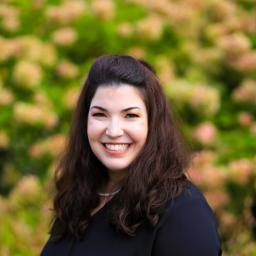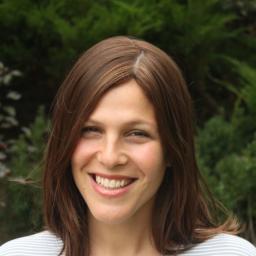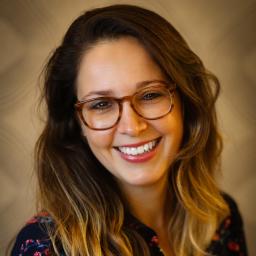Early childhood Jewish education classrooms are bubbling with exploration and learning—and not just the children. Within everyday practice, educators use their curiosity, observations and innovative thinking to address classroom needs. However, this work is often done alone without set (or compensated) time for intentional data collection and meaningful reflection. Action research within a group context has the potential to counter both the lonely journey of teaching and the need for a systematic approach towards problem-solving.
Action research requires cycles of inquiry to generate new knowledge and approaches based on specific issues of interest in the classroom or program. Educator researchers ask questions, collect data, implement interventions, analyze results, share findings and consider future inquiries. Action research, coupled with ongoing group reflection, is an empowering tool for professional development.
This article showcases the inspiring voices of The Action Research Community of Practice (ARCOP) participants. ARCOP, a partnership between The Paradigm Project, Jewish Early Childhood Leadership Institute, and Jewish Theological Seminary, consisted of 10 early childhood educators, directors, and education consultants, and two facilitators (the authors of this article). The group met virtually twice monthly for the span of 6 months to learn about and carry out action research in their professional contexts.
Below are some of the major themes that arose from participant self-reflection. The words of the group sparked implications for the future, such as the demand for ongoing collaborative reflection to become standard practice for early childhood educators.
Learning New Perspectives: Desire to Collaborate
Group reflection is predicated on a commitment to collaboration with other educators: “Collaborative reflection is vital to the work we do.” Along with learning about action research as a methodology, participants engaged in whole-group, small-group and pair discussion. In between large group meetings, they met in a consistent pairing, their chavruta. Together with one of the facilitators, chavrutot helped each other refine research questions, examine observations, co-think difficulties or confusion in their research, analyze data and consider implications and implementations. The last 10 minutes of the chavruta time were spent doing reflective journaling about the experience.
Consistent meeting times with various opportunities to reflect contributed to a culture of sharing. One member revealed “how important it is to exchange ideas with others and reflect together. Even though this brings us to a vulnerable place, it helps us to grow. Sometimes sharing with others might be harder, but it definitely gives great growth opportunities since new perspectives come to play.” These discoveries highlight the importance of learning communities, where ongoing relationships are fostered through mutual support.
Confidence and Self- Efficacy
Within these reliable and caring professional relationships, educators build trust and confidence in themselves as researchers. Self-efficacy encompasses the educator’s perceptions of their own capacities to be skillful and effective educators. Educator self-efficacy relates to professional support from others, as illuminated through this statement from one participant: “If teachers don’t feel secure, taken care of, motivated, then they won’t be as diligent in their work performance or as friendly with children.”
One participant wrote that she gained skills to “frame an inquiry that can truly be addressed and that I can do something to change the environment.” She alludes to how her learning informs her ability to affect change. Overall, there was an enhanced self-assurance as it “helped me understand the potential impact of my own curiosity to support the experiences of colleagues, children and families.”
Action research necessitates the asking of questions and assessing one’s teaching. As educators participate in the simultaneous process of action research and collaborative reflection, they encounter many moments to learn more about themselves. They gain confidence and skills to question their interactions, behaviors, and curricular choices.
Intentionality in Action Research
Early childhood educators often perceive data as ominous, yet they engage in various forms of data collection for numerous purposes on a daily basis. Placing the term data on these everyday educational practices minimizes the fear that many educators encounter with the word and helps them develop a researcher’s lens.
One member reported that she has “always known how important observation and data collection” are but “came back to revisiting this practice, this time with a new perspective, being very clear in what we are observing for. I have begun observing with more intention and less biases.” Similarly, another educator described putting “a new practice in place and has noted the responses. I am going to add to my action plan and try a survey using qualifying results. I am so excited to be trying this new method of data collection.” Learning about data collection and engaging in ongoing reflection illuminates the empowering significance of data and makes it more accessible.
Focus and Accountability
A learning community provides accountability and focus to those who might otherwise put their professional growth on the back burner as they attend to the innumerable tasks required of educators. One member described “being reminded of how structure (timelines, deadlines, group conversations) can help keep my thought processes on track.” Ideas are often left hanging for too long; questions remain unanswered until they become irrelevant or ignored. A community of practice acts as an accountability group. There is space to share intentions or aspirations and keep each other on track. A combination of fixed meetings with the large group, pair meetings with a staff facilitator in between deadlines, and occasions to give and receive feedback fostered a system of accountability that worked. Success was possible with preparation and commitment and time to refocus.
Improving Practice in Early Childhood Education
Both action research and the context of group learning (community of practice) have the potential to improve professional and institutional practices among early childhood editors. The following list indicates the main takeaways from the data and implications for normalizing professional communities like ARCOP within schools, programs, and across communities:
- Group learning (COP) and action research share goals and in unison reinforce the impact of reflection, collaboration and change.
- Action research is valuable for self-efficacy and shifting educational practices. It strengthens the need to reflect, collaborate and critique one's teaching.
- Engaging in action research within a COP enhances the commitment to identify as a researcher learn from others, remain focused an gain confidence.
- Bringing educators together virtually from various schools and across the country can be successful. Monthly large group and chavruta meetings allowed for discussion and community building that played an important role in educator and professional development.
- Along with joining educators from different programs and cities, a school can stimulate a culture of lifelong learning and research by organizing either an all-staff COP or groups of staff COPs.
- Participants may be any early childhood professional, such as educators, directors and consultants. Action research is a useful framework to be implemented across contexts.
The Jewish people are no strangers to the power that comes from establishing and participating in a community. Professional development is no different.





